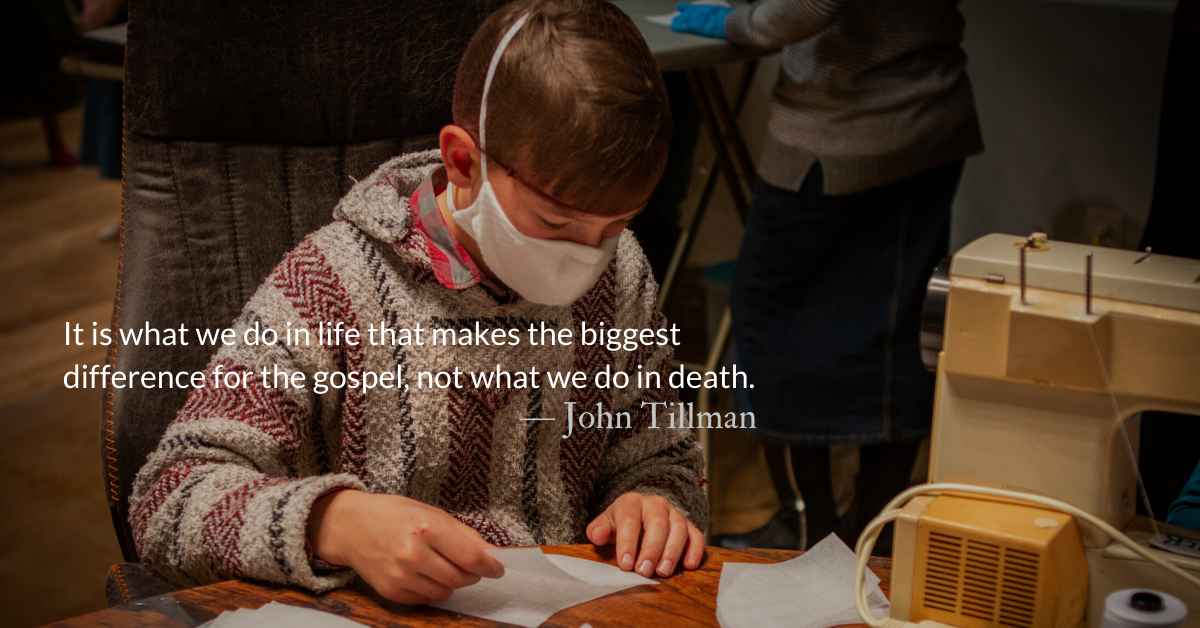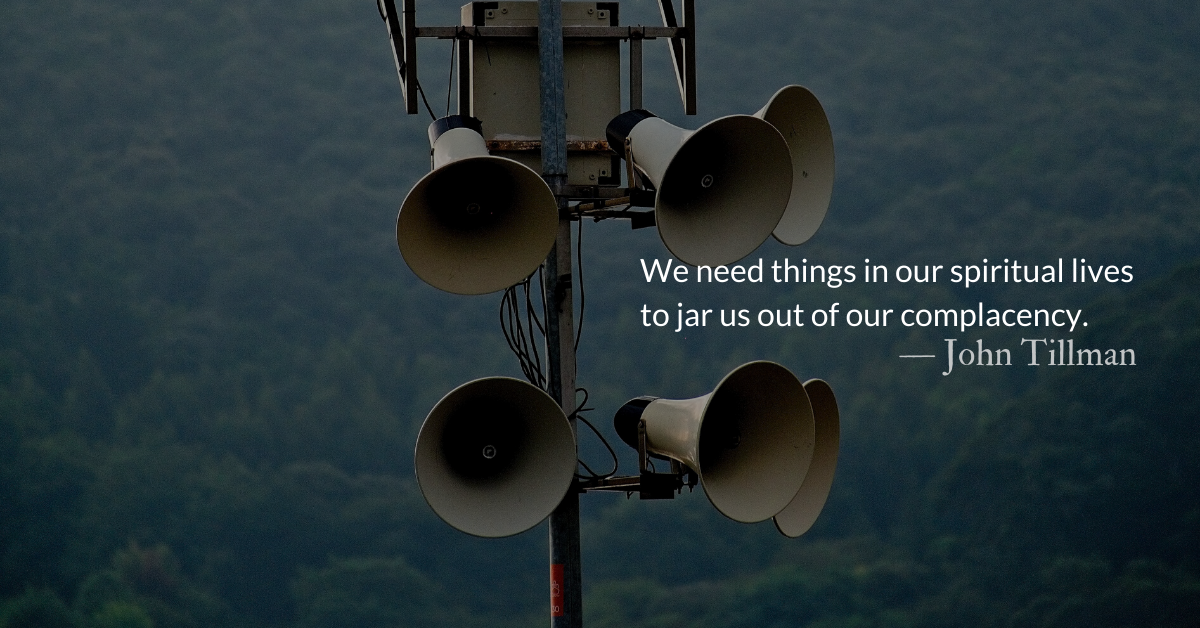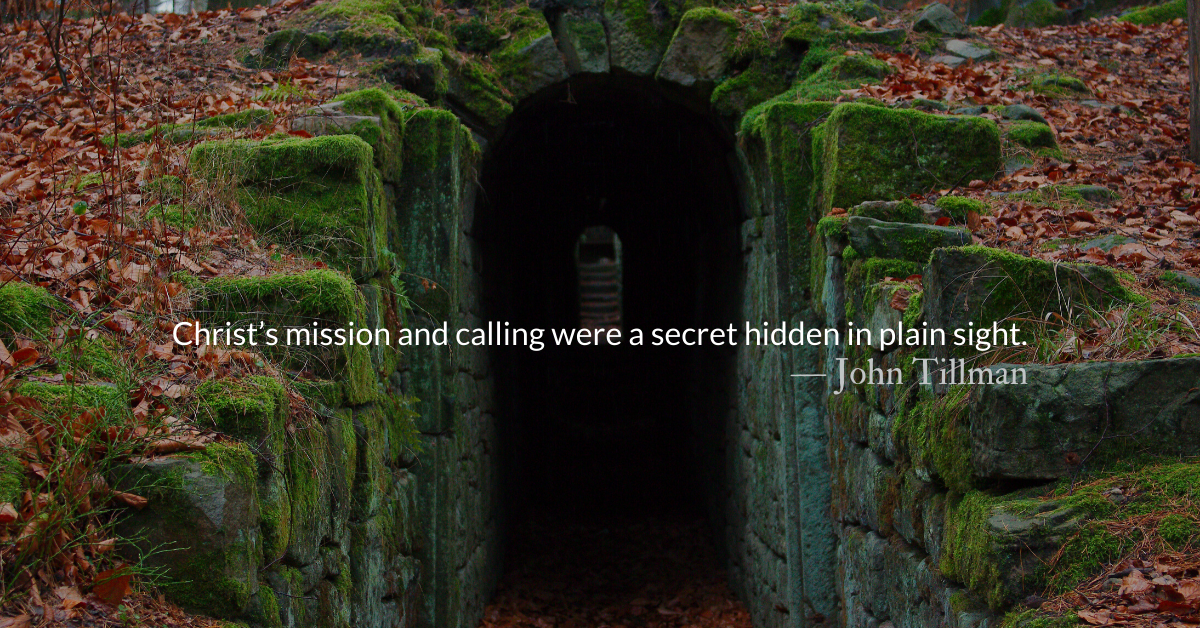Selected by reader, Azikiwe, New York
This devotional is one of the most impactful this year because of its simplicity. Self-reflection on our daily interactions and tasks causes you to be intentional, with how your time is spent; is it on yourself or through living out the gospel. This means even when I don’t want to, instead allowing the Holy Spirit to lead and guide me. Surrendering to God’s will over my life, moment by moment.
Originally published, July 16, 2020, based on readings from Jeremiah 12 & Matthew 26.
Scripture Focus: Matthew 26.35
“Even if I have to die with you, I will never disown you.” And all the other disciples said the same.
Reflection: Living Is Harder—Readers’ Choice
By John Tillman
“Dying to self” and “carrying our cross” are biblical metaphors for self-sacrificial living, but sometimes they become a literal, lived reality.
Many sermons (mostly to youth groups) challenge believers with the stories of modern Christians who were killed while doing ministry or who refused to denounce Christ to save their own lives. These sermons ask, “Would you be willing to do the same?”
These well-meaning sermons are intended to be inspirational. (And they are.) They don’t truly intend for us to follow these human martyrs, but to follow Jesus in the same, self-sacrificial manner they did. However, an unintentional lesson in these sermons is that the hardest or greatest thing we could do for Christ is to die in some violent way. We can unintentionally denigrate living for Christ by glorifying dying for him.
The truth is that living for Christ in the mundane and ordinary is far more difficult than dying for him. Dying is momentary. Living stretches on. Paul recognized this, stating that he would rather die and be with the Lord, but it was better for all if he continued struggling and living for Christ. (Philippians 1.20-24) Living for Christ in the world often makes a larger difference in the world than dramatic sacrifices.
Peter gets a lot of flack for being the first, loudest, and proudest to declare that he would die for Jesus without following through later that night. But all the disciples did the same. May we have the passion of Peter and the disciples, yet retain the humility and wisdom of knowing that despite our best intentions we may fail.
Just like Peter, don’t many of us feel that we would give our lives for Jesus? Why then do we resist giving of our time for him in service, in study, or in prayer?
It matters less what we might say about Christ when someone puts a gun in our face than what we do say about him to a friend who is hurting. It matters less how willing we are to give up our lives while sharing the gospel in a dangerous place than how willing we are to give up our rights, or give up our money, or give up our time when we are living in comfort.
In the end, it is what we do in life that makes the biggest difference for the gospel, not what we do in death.
Divine Hours Prayer: The Refrain for the Morning Lessons
Righteousness and justice are the foundations of your throne; love and truth go before your face. — Psalm 89.14
– Divine Hours prayers from The Divine Hours: Prayers for Summertime by Phyllis Tickle
Today’s Readings
Jeremiah 48 (Listen – 7:31)
Psalm 25 (Listen – 2:18)
Read more about Where Martyrdom Begins Part 1
It is in the so-called small, everyday sacrifices that we give our lives for each other.
Read more about Supporting our Work
The Park Forum strives to provide short, smart, engaging, biblical content to people across the world for free with no ads. Gifts to The Park Forum support this mission.













